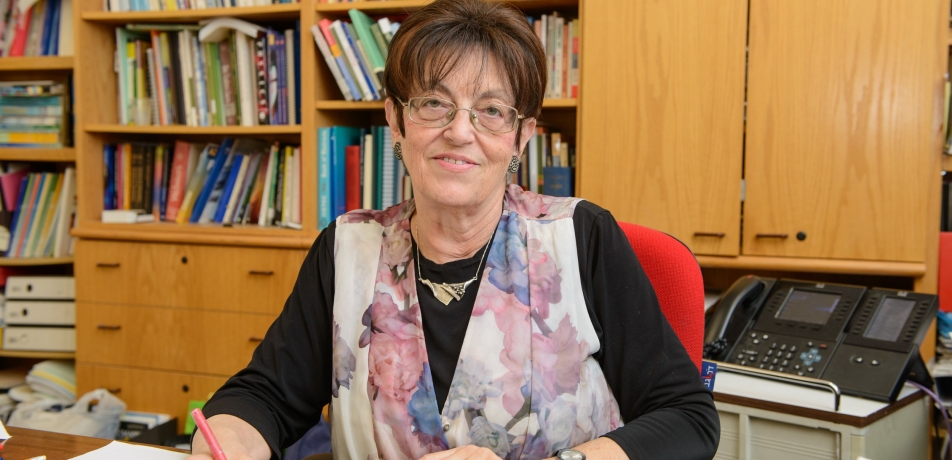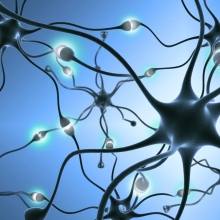Prof. Bat Sheva Eylon
EMET winner, educator par excellence
Q&A

Prof. Bat Sheva Eylon of the Department of Science Teaching has received the EMET Award for 2015 for the Promotion of Education.
This prestigious annual award is sponsored by the AMN Foundation for the Advancement of Science, Art and Culture in Israel, under the auspices of and in cooperation with the Prime Minister of Israel.
The prizes recognize Israeli citizens and occasionally non-citizens who reside in Israel for their far-reaching academic and professional achievements which have made a significant contribution to society. Prof. Eylon received the award in recognition of “her pioneering work in the development of science education and learning sciences, and for the cultivation of science teachers and for the empowerment of involved science students.”
After seven fruitful years as departmental head, Prof. Eylon stepped down this year, but continues to be an integral member of staff. She also continues as the pedagogical director of the Rothschild-Weizmann Program for Excellence in Science Teaching. She has been succeeded as department head by Prof. Anat Yarden.
Prof. Eylon is a mother of five, and grandmother to an ever-growing number of grandchildren.
Q Congratulations on receiving the EMET Prize!
A I was delighted to receive the prize with Prof. Miriam Ben Peretz [of the University of Haifa, the 2006 winner of the Israel Prize for Education]. There were many good applicants from the field of education whom I know and respect. This is a great honor, especially to receive the prize with Miriam, a very dear friend.
Q Why did you choose science education as a career?
A I studied mathematics and physics as an undergraduate and did my MSc in physics at the Weizmann Institute of Science while teaching high school physics. I realized early on that I wanted to devote my life’s work to science education. My husband’s postdoctoral studies took us to UC Berkeley, which was a great opportunity for me, and I did my PhD in science education there. When we returned to Israel, I became a postdoctoral fellow in the Department of Science Teaching. I was bursting with new ideas that I had learned about at Berkeley, and had the opportunity to put them into action.
Q There are many initiatives to be proud of. Can you describe a few?
A We have designed curricula and created learning materials that promote knowledge integration and critical thinking skills for middle and high school students - this is ongoing work that we can take pride in.
We have also designed programs for excellent and interested students, like the “Physics and Industry” program, which is carried out at the Davidson Institute of Science Education and in collaboration with engineers from Elbit Systems, which involves students working on practical tasks such as designing electro-optically based energy-saving devices. The program challenges these students and develops their creativity.
We have also established regional communities of over 200 physics teachers who meet regularly in different locations around Israel. They share experiences and practical knowledge, learn from experts, and are guided by master teachers who belong to a community that we are coaching. This project is supported by the Trump Foundation and the Ministry of Education and is a response to the decrease in the number of students who choose to study physics, especially segments of society that are underrepresented in science, in addition to helping the teachers become more engaging and responsive to their students.
Q What is the rationale behind teaching the teachers?
A We, together with the Rothschild Caesarea Foundation, strongly believe that fostering excellence and enriching the knowledge of teachers is a highly effective way to enrich the science education of schoolchildren. In economics, there is the term ‘trickle-down effect,’ and that is a good term for this concept too. In 2008, the Weizmann Institute launched the Rothschild-Weizmann Program for Excellence in Science Teaching, which offers non-thesis MSc degrees to math and science teachers and has continuing programs for introducing innovations and initiatives to the science education field.
To date, 175 teachers have graduated from the program, which is run by the Feinberg Graduate School. All graduates are acting teachers and many have significant roles in their schools and beyond. It has been a huge success, and one of the things that has been most satisfying is seeing the participants that are a true cross-section of Israeli society, learn together and from each other.
Prof. Bat Sheva Eylon is funded by The Maurice and Ilse Katz Center for Science Teaching, which she heads, Rothschild Caesarea Foundation, Abraham and Sonia Rochlin Foundation. Prof. Eylon is the incumbent of the Chief Justice Bora Laskin Professorial Chair of Science Teaching.








